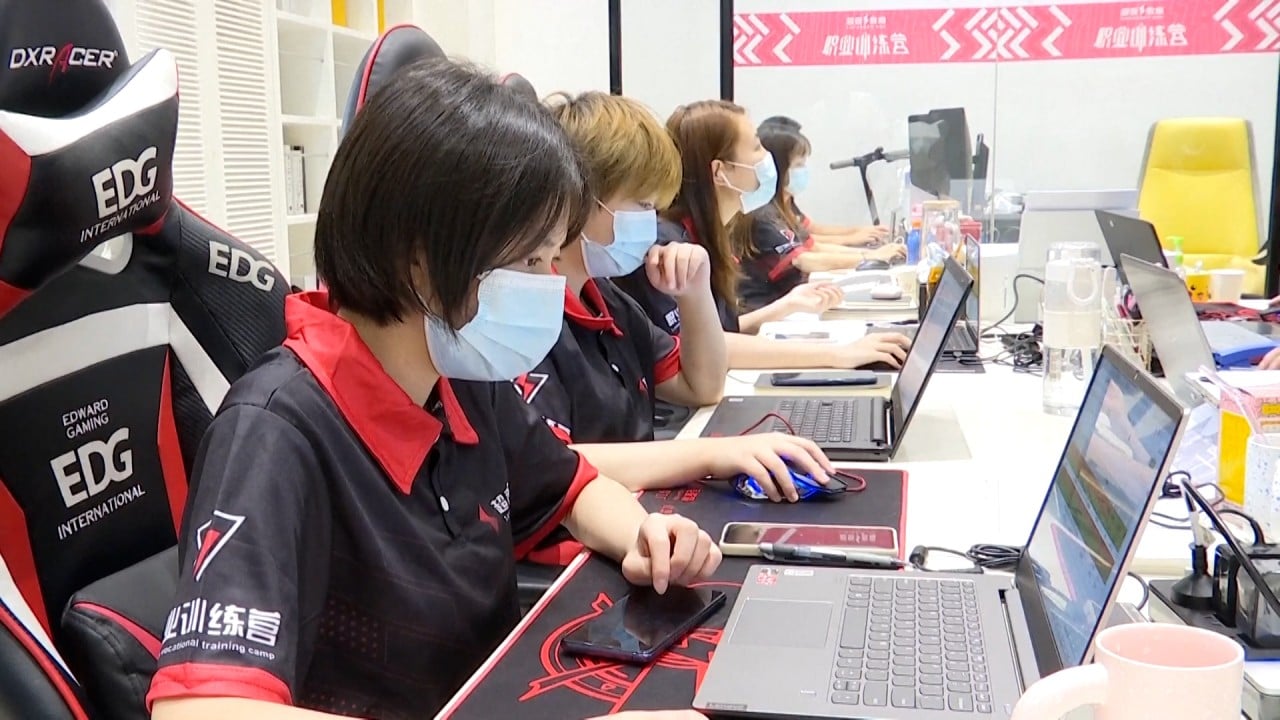
China’s tightened playing restriction for young video gamers may ruin country’s esports ambitions
- The latest restriction would make it nearly impossible for the country’s esports sector to form and train groups of players under the age of 18
- China’s esports market revenue is projected to surpass US$25.5 billion this year
The latest restriction is not only expected to disrupt, but potentially damage the development of esports in mainland China, according to Warren Lee, technical director at esports company Hexing Global.
“Under this new regulation, there is pretty much zero chance to train the next generation of [esports] competitors,” Lee said. “Personally, I can’t imagine what this means for [esports] team owners in China right now.”

01:43
China’s esports industry offers training to ease talent shortage
In esports, 18 is already considered a mature age for a player because most participants consider retirement early in their 20s. It is uncertain whether the Chinese government will make special arrangements for certified under-18 esports players to get sufficient training time.
On China’s tightened gaming time for young players, LightStream Research founder Mio Kato said he expected esports in the country to be hit hard, according to a piece he wrote on global investment research network Smartkarma.
Despite the latest playing time restriction for young people, organised esports programmes in schools could help train new players, according to John Oliverius, president of Verius Ventures, a company focused on media rights, content licensing and international broadcast production. “If schools and cities have the authority to allow organised esports, that could go a long way towards solving the problem [about gaming limits for young players],” he said.

